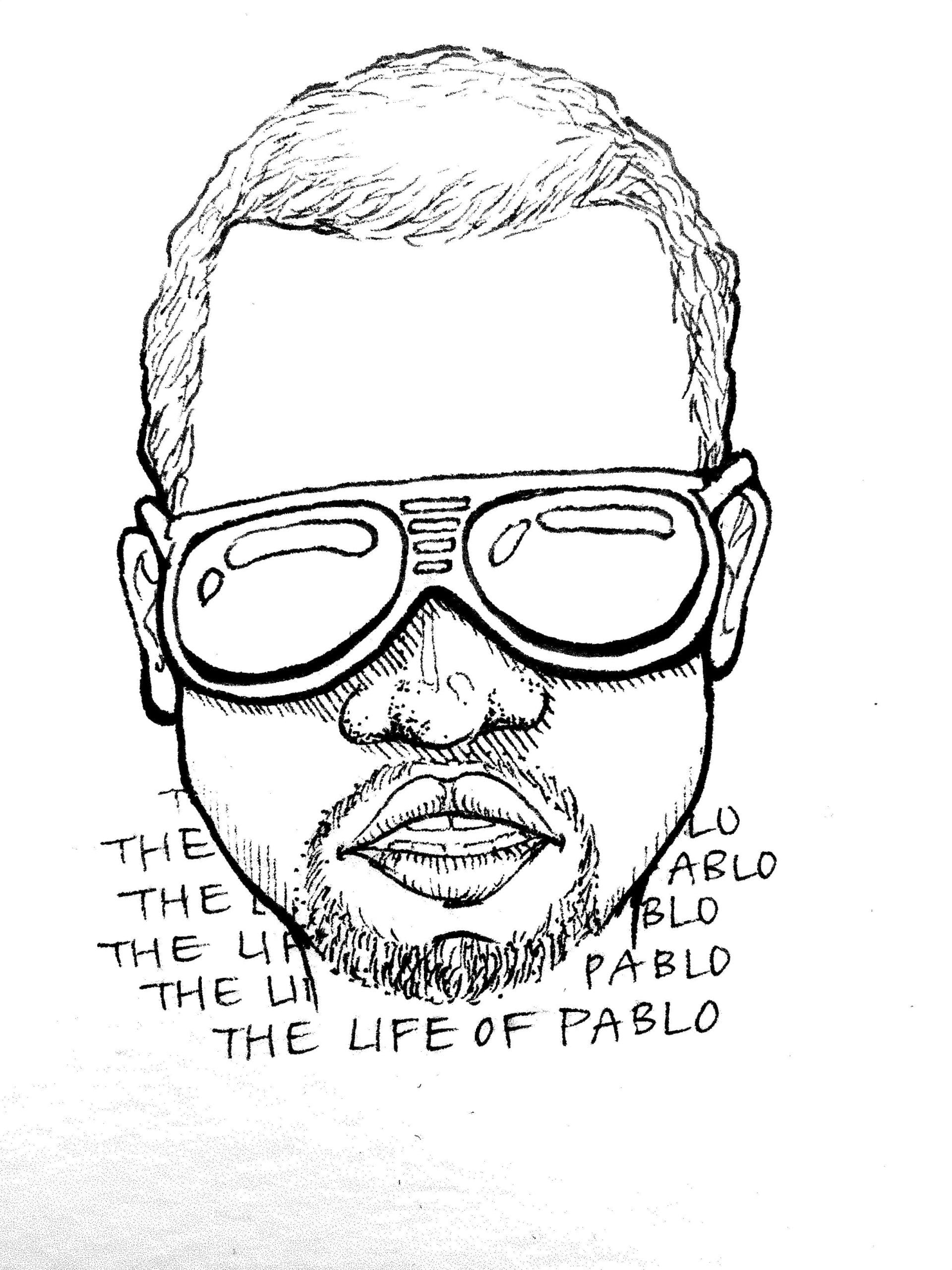The legend of Kanye West is as well substantiated as it is disseminated: in the barren post-gangsta era of the early 2000s, Kanye revitalized the genre by introducing soul-infused production and quality lyricism defined by bold juxtaposition of genuine introspection with tremendous braggadocio. Kanye continued to rip holes in the fabric of Hip-Hop for the next decade, out of which grew the diverse, mainstream genre we enjoy today. If you buy into this claim — if you recognize Yeezus’ Jamaican dance-hall vocals and abrasive synths in Kendrick Lamar’s “The Blacker the Berry,” or if you notice 808s & Heartbreak’s emotional vulnerability in chart-topping artists like Drake, J. Cole, and Young Thug — then the The Life of Pablo should seem like the logical conclusion to Mr. West’s legacy.
The album opener “Ultralight Beam” features the distressed synth that overwhelms and crashes throughout Yeezus, but West and Rick Rubin channel it into a timid melody. Then there’s a sample of a 4 year-old girl praying from Instagram, and instead of descriptions of late-night organ donors there’s gospel-backed cries for salvation. The first actual verse on the album finally arrives with a 35+ line masterpiece by Chance the Rapper, and he isn’t ungrateful for the opportunity: “I met Kanye West, I’m never going to fail.” Kanye has never shied from extensive features from young artists, they have never been the defining verse of an album’s intro, if not the album itself. Nor have they been by Chance the Rapper, a fellow Chicago emcee who grew up on West’s music. This doesn’t have to be a passing-the-torch moment, but it certainly could be one hell of one.
Like other Kanye albums, The Life of Pablo makes a point of lyrical and sonic conflict. The stand out second track “Father Stretch My Hands” follows a prayer song that could sell out St. Patrick’s and initially reaffirms Kanye’s piety (“I just want to feel liberated, if I ever instigated I’m sorry”) only to illustrate the dangers of bleached assholes in the next line. Ambivalence also oozes from the production — a soulful sermon is interrupted by the least-expected Metro Boomin tag of all time.
Kanye fully embraces trap music throughout the album, perhaps the style he enabled that is most sonically distant from his own, and still manages to make quality rap songs unlike any other. The trap-soul fusion not only innovates, it bangs. Designer’s second half of “Father Stretch My Hands Pt. 2” is liable to raise car insurance rates across the country. “FML” uses trap to compound the album’s ambivalence with an “All Falls Down”-esque confessionary, Metro production, and vocals from The Weeknd.
The album’s thematic juxtaposition comes to a head in “Wolves.” Backed by chilling Sia vocals, Kanye plays the angel Gabriel (“Impregnate your mind let’s have a baby without fucking”) and acknowledges the absurdity of his passions for family and a reckless nightlife in religious terms: “What if Mary was in the club/When she met Joseph around hella thugs?/Cover Nori in lambs’ wool.”
The Life of Pablo also incorporates several rap themes that have thrived and ended during West’s career — a major departure from the outsider mentality embodied in Yeezus. “Silver Surfer Intermission” revives the incredibly tired phone conversation interlude. Something’s up here; old Kanye wouldn’t dream of including a throwaway transition just to get the last word in a beef with Wiz Khalifa over a potential album title.
The dumpster-diving doesn’t stop there. “Feedback” features one of the album’s 2008 revival duos, with Rihanna vocals and extensive Swizz Beatz ad-libs. After we’re taunted by the cringe-worthy sexism of West’s braggadocio and the track seems like a lost cause, Rihanna plays Jesus, returning after the final hook to initiate salvation. She utters “I just wanted you to know,” leading into a brilliant take on Sister Nancy’s “Bam Bam,” which underlies another full minute of cliché ad-libs courtesy of Swizz Beatz.
Kanye is fucking with us. The song is a tongue-in-cheek aside, but hints at something bigger. With a parade of performers and trends he enabled, Kanye forges The Life of Pablo into a trophy case for his contributions and, as a bi-product, a full spectrum of relevance, from trap to Kid Cudi.
Kanye West is 38, more than a decade older than most rap legends’ peaks. The Life of Pablo, a forward-looking retrospective, has too many characteristics of a last album to not think of it as one. Most importantly, the album does exactly what a final Kanye album should do. By embracing the vanguard that West helped create, it celebrates past success, all while still managing to push forward.
